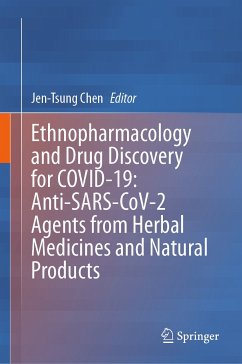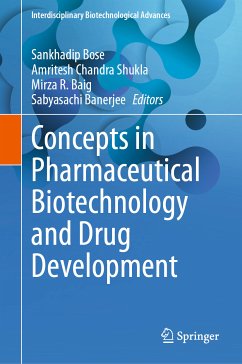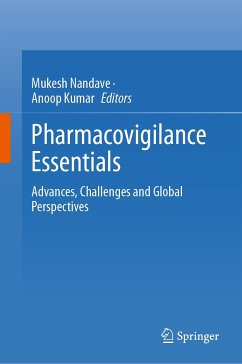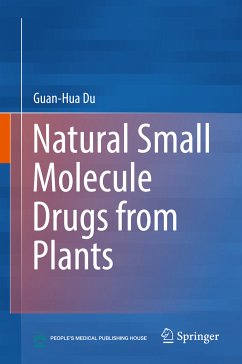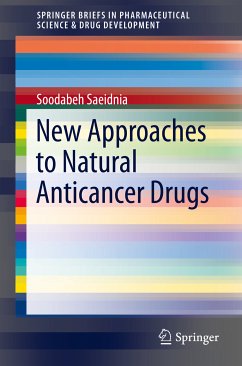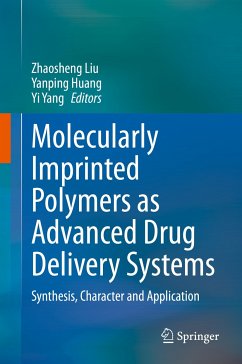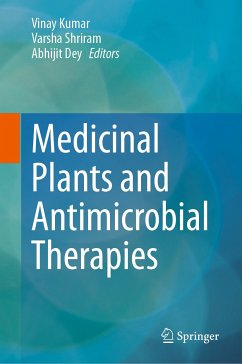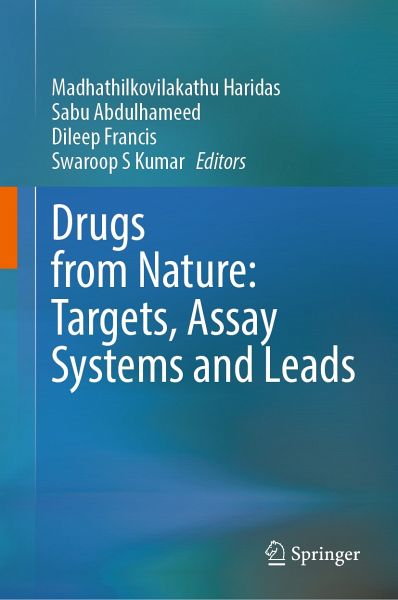
Drugs from Nature: Targets, Assay Systems and Leads (eBook, PDF)
Versandkostenfrei!
Sofort per Download lieferbar
112,95 €
inkl. MwSt.
Weitere Ausgaben:

PAYBACK Punkte
56 °P sammeln!
This book provides an overview of the drug discovery process from natural sources such as plants and microbes. While technological advances have streamlined the drug discovery process, enhancing the throughput and success rates, the structural features of natural products remain the primary reference for small-molecule drug discovery.Focusing on the drug targets blocked/altered by natural/nature-inspired molecules, it covers how potential drug leads are screened and identified using appropriate assay systems, and the current status of drugs identified using such approaches. State-of-the-art ap...
This book provides an overview of the drug discovery process from natural sources such as plants and microbes. While technological advances have streamlined the drug discovery process, enhancing the throughput and success rates, the structural features of natural products remain the primary reference for small-molecule drug discovery.
Focusing on the drug targets blocked/altered by natural/nature-inspired molecules, it covers how potential drug leads are screened and identified using appropriate assay systems, and the current status of drugs identified using such approaches. State-of-the-art approaches in target identification, assay development, and lead identification have also been discussed in detail. Other topics included are targets and leads in inflammation, cancer, reproductive medicine, cardiovascular and neuromuscular ailments, and infectious diseases as well as the challenges in translating drug leads into clinically viable drugs.
This volume serves as a handbook for researchers in phytochemistry and drug discovery, and as a reference for researchers and students of applied biology.
Focusing on the drug targets blocked/altered by natural/nature-inspired molecules, it covers how potential drug leads are screened and identified using appropriate assay systems, and the current status of drugs identified using such approaches. State-of-the-art approaches in target identification, assay development, and lead identification have also been discussed in detail. Other topics included are targets and leads in inflammation, cancer, reproductive medicine, cardiovascular and neuromuscular ailments, and infectious diseases as well as the challenges in translating drug leads into clinically viable drugs.
This volume serves as a handbook for researchers in phytochemistry and drug discovery, and as a reference for researchers and students of applied biology.
Dieser Download kann aus rechtlichen Gründen nur mit Rechnungsadresse in A, B, BG, CY, CZ, D, DK, EW, E, FIN, F, GR, HR, H, IRL, I, LT, L, LR, M, NL, PL, P, R, S, SLO, SK ausgeliefert werden.



